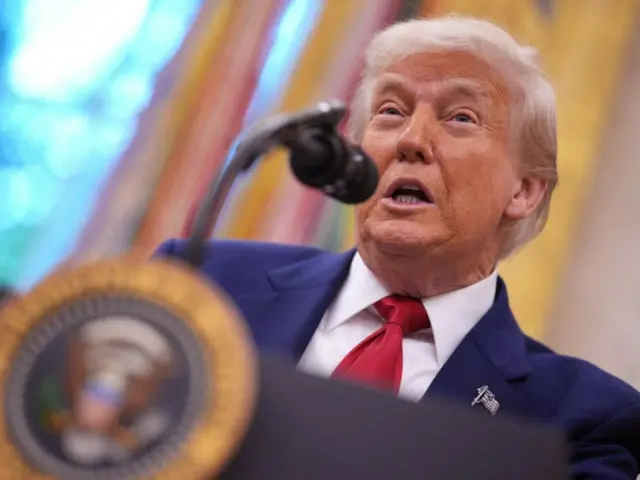Although the criteria were met, South Korea was not found to have intentionally manipulated the exchange rate. It was deemed to have intervened in the market on an exceptional basis to respond to sudden exchange rate fluctuations.
The U.S. Treasury Department submitted to Congress on the 5th local time, in its "Semi-Annual Report on Macroeconomic and Exchange Rate Policies of Major Trading Partners,"
The government announced that it had designated nine countries, including South Korea, as targets for currency monitoring. The list includes China, Japan, South Korea, Singapore, Taiwan, Vietnam, Germany, Ireland and Switzerland.
South Korea was first designated as a country under currency monitoring in April 2016, and was removed from the list in November 2023. However, it was designated again in November last year and was named in this report.
The report is also attracting attention as it is the first foreign exchange report since President Trump took office again earlier this year. Based on the Trade Promotion Act enacted in 2015, the U.S. Treasury Department has issued a report on the status of exports of goods and services to the United States, which are large in size.
The study evaluates the exchange rate policies of the 20 largest countries in the world. The criteria for evaluation are a trade surplus with the United States of more than $15 billion, a current account surplus exceeding 3% of gross domestic product (GDP), and a 12-month exchange rate deficit.
The countries are required to have net purchases of US dollars for at least eight months, with the amount exceeding 2% of GDP. If two of these conditions are met, the country is placed under "monitoring," and if all three conditions are met, the country is placed under "in-depth analysis."
South Korea meets two of these criteria: a trade surplus with the United States and a current account surplus. The U.S. Treasury Department analyzed the practices of major trading nations and concluded that "the four-year surplus by the fourth quarter of 2024 will be the fourth quarter of 2024."
"During the quarter, there were no indications that any of the United States' major trading partners engaged in currency manipulation with the intent to impede balance of payments adjustment or to gain an unfair competitive advantage in trade."
Regarding South Korea in particular, “In April 2024, due to the strong dollar, and in the fourth quarter of the same year, due to the Bank of Korea’s interest rate cut in November and political reasons (such as impeachment),
"The won-dollar exchange rate fell to 1,480 won, its lowest since the global financial crisis, but has since declined to 1,480 won.
"The won strengthened 3.7% as of the end of April 2025 compared to the beginning of the year due to the tariff announcement and some stabilization of the political situation," it said.
Furthermore, “The Korean authorities’ intervention in the foreign exchange market is two-way depending on the time,
The market intervention was particularly concentrated in April and December 2024 in response to excessive volatility caused by the weak won, and the dollar/yen exchange rate was not assessed as having been unilaterally intervened in the market to encourage a weaker won.
At the same time, the U.S. Treasury Department stressed that "South Korea should continue to limit its intervention in the foreign exchange market to exceptional circumstances where market order is seriously undermined."
Regarding China, "despite the recent downward pressure on the People's Republic of China, the report does not list it as a currency manipulator.
"Although it was not designated, it was pointed out as the most prominent example among major trading nations in terms of the lack of transparency in its exchange rate policy," he said.
"If evidence of official or unofficial intervention is confirmed, we will regard it as currency manipulation and take action."
2025/06/06 10:23 KST
Copyrights(C) Edaily wowkorea.jp 88

